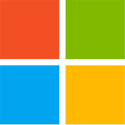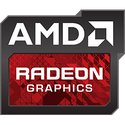
Turtle Beach Dismantles ROCCAT Brand, Carries on Products and Support
The ROCCAT brand is officially reaching the end of its life today, as Turtle Beach has confirmed that ROCCAT will not be a separate brand anymore but rather integrated under the covers of Turtle Beach. Turtle Beach has noted: "We want to bring a greater level of integration to our family of products across console, PC and simulation. We felt that time and resources would be best spent focusing under a single brand and creating a range of products that matter most to gamers." ROCCAT was acquired by Turtle Beach in 2019 for $14.8 million to strengthen the company's positioning in the PC accessories market. At the time, ROCCAT's lineup of gaming keyboards, mice, headsets, and other peripherals complemented Turtle Beach's console-oriented product mix.
In a FAQ posted on its website, Turtle Beach also added: "While we'll be retiring the ROCCAT brand, many of its iconic product lines like the Vulcan, Kone, Burst and Sense will transition under the Turtle Beach brand. Our commitment to PC products remains as strong as ever and we have several ground-breaking new products to introduce as well as Turtle Beach-branded versions of popular existing ROCCAT products sticking around." For product support, the same teams are handling any customer support, and the company has merged them into a single new website, which handles tech and customer questions at support.turtlebeach.com. For returns, the company also takes care of ROCCAT products. The ROCCAT Swarm software will continue to work, even with Swarm II scheduled for a debut this year in Spring. From now on, all products will be under a single brand but will target the same audience. Turtle Beach will also rebrand the social media channels from ROCCAT to Turtle Beach PC. Refer to the FAQ posted on the official company website for more inquiries.
In a FAQ posted on its website, Turtle Beach also added: "While we'll be retiring the ROCCAT brand, many of its iconic product lines like the Vulcan, Kone, Burst and Sense will transition under the Turtle Beach brand. Our commitment to PC products remains as strong as ever and we have several ground-breaking new products to introduce as well as Turtle Beach-branded versions of popular existing ROCCAT products sticking around." For product support, the same teams are handling any customer support, and the company has merged them into a single new website, which handles tech and customer questions at support.turtlebeach.com. For returns, the company also takes care of ROCCAT products. The ROCCAT Swarm software will continue to work, even with Swarm II scheduled for a debut this year in Spring. From now on, all products will be under a single brand but will target the same audience. Turtle Beach will also rebrand the social media channels from ROCCAT to Turtle Beach PC. Refer to the FAQ posted on the official company website for more inquiries.
































































